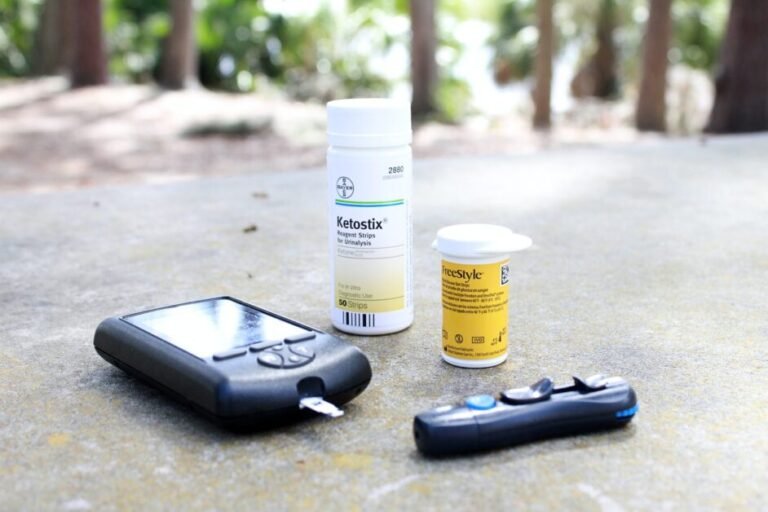Table of Contents
The Importance of Regular Exercise in Diabetes Management
Introduction
Understanding diabetes
Understanding diabetes is crucial for effectively managing the condition. Diabetes is a chronic disease that affects the body’s ability to regulate blood sugar levels. There are two main types of diabetes: type 1 and type 2. Type 1 diabetes occurs when the body does not produce enough insulin, a hormone that helps regulate blood sugar. Type 2 diabetes, on the other hand, is characterized by insulin resistance, where the body does not effectively use insulin. Regular exercise plays a vital role in diabetes management as it helps improve insulin sensitivity, lowers blood sugar levels, and reduces the risk of complications associated with diabetes. By understanding the underlying mechanisms of diabetes, individuals can make informed decisions about their exercise routine and incorporate physical activity as an integral part of their diabetes management plan.
The role of exercise in diabetes management
Regular exercise plays a crucial role in the management of diabetes. Engaging in physical activity helps to control blood sugar levels by increasing insulin sensitivity, allowing the body to use glucose more effectively. Exercise also aids in weight management, as it helps to burn calories and build lean muscle mass. Additionally, regular physical activity can improve cardiovascular health, reduce the risk of complications associated with diabetes, and enhance overall well-being. It is important for individuals with diabetes to incorporate exercise into their daily routine to effectively manage their condition and improve their quality of life.
Benefits of regular exercise for diabetics
Regular exercise offers numerous benefits for individuals with diabetes. Firstly, it helps to improve insulin sensitivity, allowing the body to use insulin more effectively and maintain stable blood sugar levels. This is particularly important for individuals with type 2 diabetes, as it can help reduce the need for medication and improve overall glycemic control. Additionally, engaging in physical activity on a regular basis can aid in weight management, as it helps to burn calories and build lean muscle mass. This is crucial for individuals with diabetes, as excess weight can worsen insulin resistance and increase the risk of complications. Moreover, regular exercise has been shown to lower blood pressure and improve cardiovascular health, reducing the risk of heart disease, a common complication of diabetes. Lastly, exercise can also have positive effects on mental health, reducing stress and anxiety levels, and promoting a sense of well-being. Overall, incorporating regular exercise into a diabetes management plan is essential for maintaining optimal health and improving overall quality of life.
Types of Diabetes

Type 1 diabetes
Type 1 diabetes, also known as insulin-dependent diabetes, is a chronic condition in which the body’s immune system mistakenly attacks and destroys the insulin-producing cells in the pancreas. As a result, individuals with type 1 diabetes require lifelong insulin therapy to regulate their blood sugar levels. Regular exercise plays a crucial role in the management of type 1 diabetes as it helps to improve insulin sensitivity, lower blood sugar levels, and reduce the risk of complications. Engaging in physical activity can also enhance cardiovascular health, promote weight management, and boost overall well-being. However, it is important for individuals with type 1 diabetes to closely monitor their blood sugar levels before, during, and after exercise to prevent hypoglycemia or hyperglycemia. Consulting with a healthcare professional and creating a personalized exercise plan is essential to ensure safe and effective physical activity for individuals with type 1 diabetes.
Type 2 diabetes
Type 2 diabetes is a chronic condition characterized by the body’s inability to effectively use insulin or produce enough of it. Regular exercise plays a crucial role in managing type 2 diabetes as it helps improve insulin sensitivity and lowers blood sugar levels. Engaging in physical activity on a consistent basis can also aid in weight management, which is particularly important for individuals with type 2 diabetes as excess weight can worsen insulin resistance. Additionally, exercise has been shown to reduce the risk of developing complications associated with diabetes, such as heart disease and stroke. By incorporating regular exercise into their routine, individuals with type 2 diabetes can significantly improve their overall health and better control their blood sugar levels.
Gestational diabetes
Gestational diabetes is a type of diabetes that occurs during pregnancy and affects approximately 10% of pregnant women. It is characterized by high blood sugar levels that can pose risks to both the mother and the baby. Regular exercise plays a crucial role in managing gestational diabetes as it helps to control blood sugar levels, improve insulin sensitivity, and maintain a healthy weight. Engaging in moderate-intensity activities such as walking, swimming, or prenatal yoga can not only help regulate blood sugar levels but also reduce the risk of complications associated with gestational diabetes, such as preeclampsia and cesarean delivery. Additionally, exercise during pregnancy can enhance overall well-being, boost energy levels, and promote better sleep, contributing to a healthier pregnancy experience for women with gestational diabetes.
Effects of Exercise on Blood Sugar Levels

Increased insulin sensitivity
Regular exercise plays a crucial role in improving insulin sensitivity, making it an essential component of diabetes management. When individuals engage in physical activity, their muscles require more glucose for energy, leading to increased glucose uptake from the bloodstream. This increased demand for glucose prompts the body to become more sensitive to insulin, the hormone responsible for regulating blood sugar levels. As a result, regular exercise can help individuals with diabetes lower their blood glucose levels and reduce their reliance on medication. Moreover, improved insulin sensitivity through exercise can also enhance overall metabolic health, reduce the risk of cardiovascular complications, and contribute to better long-term glycemic control. Therefore, incorporating regular exercise into a diabetes management plan is vital for optimizing insulin sensitivity and maintaining overall health.
Lowering blood glucose levels
Regular exercise plays a crucial role in lowering blood glucose levels for individuals with diabetes. Engaging in physical activity increases the body’s demand for glucose, allowing it to be taken up by the muscles and used as a source of energy. This process helps to reduce the concentration of glucose in the bloodstream, leading to improved glycemic control. Additionally, exercise enhances insulin sensitivity, enabling the hormone to work more effectively in transporting glucose from the blood into the cells. As a result, regular exercise not only helps to lower blood glucose levels but also contributes to better overall diabetes management. It is important for individuals with diabetes to incorporate exercise into their daily routine to maintain stable blood sugar levels and reduce the risk of complications associated with the condition.
Reducing the risk of hypoglycemia
Regular exercise plays a crucial role in reducing the risk of hypoglycemia in individuals with diabetes. Hypoglycemia, also known as low blood sugar, can occur when the body’s glucose levels drop too low. Engaging in physical activity helps to regulate blood sugar levels by increasing insulin sensitivity and improving glucose uptake by the muscles. By incorporating regular exercise into their diabetes management routine, individuals can enhance their body’s ability to maintain stable blood sugar levels, reducing the likelihood of experiencing hypoglycemic episodes. However, it is important for individuals to monitor their blood sugar levels before, during, and after exercise to ensure they are within a safe range and make any necessary adjustments to their medication or food intake.
Exercise Guidelines for Diabetics
Consulting with a healthcare professional
Consulting with a healthcare professional is crucial for individuals with diabetes who are considering incorporating regular exercise into their management routine. These professionals, such as doctors or certified diabetes educators, can provide personalized guidance and support based on an individual’s specific health needs and goals. They can help determine the most suitable types and intensity of exercises, taking into account factors such as age, overall health, and any existing complications. Additionally, healthcare professionals can offer advice on monitoring blood sugar levels before, during, and after exercise, as well as adjusting medication or insulin doses if necessary. By seeking guidance from a healthcare professional, individuals with diabetes can ensure that their exercise routine is safe, effective, and tailored to their unique circumstances.
Choosing the right type of exercise
Choosing the right type of exercise is crucial for individuals with diabetes to effectively manage their condition. It is recommended to engage in a combination of aerobic exercises, such as walking, swimming, or cycling, and strength training exercises, such as weightlifting or resistance band workouts. Aerobic exercises help improve cardiovascular health, lower blood sugar levels, and increase insulin sensitivity. On the other hand, strength training exercises help build muscle mass, which can enhance glucose uptake and improve overall blood sugar control. It is important to consult with a healthcare professional or a certified exercise specialist to determine the most suitable exercise regimen based on individual needs, preferences, and any existing health conditions. Regular physical activity, tailored to one’s abilities and interests, can significantly contribute to the effective management of diabetes and improve overall well-being.
Creating a personalized exercise plan
Creating a personalized exercise plan is crucial for individuals with diabetes as it allows them to tailor their physical activity to their specific needs and goals. This plan should take into consideration factors such as the individual’s current fitness level, any existing health conditions, and their personal preferences. By working closely with a healthcare professional or a certified exercise specialist, individuals can design an exercise routine that includes a combination of aerobic exercises, strength training, and flexibility exercises. The personalized plan should also consider the individual’s schedule, making it realistic and achievable. Regular monitoring and adjustments to the exercise plan may be necessary to ensure that it remains effective and safe. With a personalized exercise plan in place, individuals with diabetes can experience improved blood sugar control, increased energy levels, and reduced risk of complications associated with the condition.
Additional Benefits of Exercise for Diabetics

Weight management
Weight management is a crucial aspect of diabetes management, as maintaining a healthy weight can greatly improve overall blood sugar control and reduce the risk of complications. Regular exercise plays a significant role in weight management by helping individuals with diabetes achieve and maintain a healthy body weight. Engaging in physical activity not only burns calories but also increases muscle mass, which in turn boosts metabolism and helps to burn more calories even at rest. Additionally, exercise can help to reduce body fat, particularly visceral fat, which is known to contribute to insulin resistance. By incorporating regular exercise into their routine, individuals with diabetes can effectively manage their weight, improve insulin sensitivity, and ultimately enhance their overall diabetes management.
Improved cardiovascular health
Regular exercise plays a crucial role in improving cardiovascular health for individuals with diabetes. Engaging in physical activity on a consistent basis helps to strengthen the heart muscle, lower blood pressure, and improve blood circulation throughout the body. By increasing the heart’s efficiency, exercise can reduce the risk of developing cardiovascular complications associated with diabetes, such as heart disease and stroke. Additionally, regular exercise helps to manage cholesterol levels by increasing the levels of high-density lipoprotein (HDL) or “good” cholesterol and decreasing the levels of low-density lipoprotein (LDL) or “bad” cholesterol. These positive effects on cardiovascular health not only contribute to better overall well-being but also aid in the management and prevention of diabetes-related complications.
Enhanced mood and mental well-being
Regular exercise not only plays a crucial role in managing diabetes but also has a significant impact on enhancing mood and mental well-being. Engaging in physical activity releases endorphins, commonly known as the “feel-good” hormones, which can help alleviate symptoms of depression and anxiety. Exercise also promotes better sleep patterns, reduces stress levels, and improves overall cognitive function. Furthermore, participating in regular exercise routines can boost self-esteem and confidence, providing individuals with a sense of accomplishment and empowerment. By incorporating exercise into their diabetes management plan, individuals can experience not only physical benefits but also a positive impact on their mental health and well-being.
Tips for Incorporating Exercise into Daily Routine

Start with small, achievable goals
Start with small, achievable goals
When it comes to incorporating regular exercise into diabetes management, starting with small, achievable goals is crucial. Setting realistic targets allows individuals to gradually build up their fitness levels and avoid feeling overwhelmed or discouraged. For someone who is new to exercise or has been inactive for a while, beginning with short, low-intensity activities such as a 10-minute walk or gentle stretching can be a great starting point. As these small goals are consistently met, individuals can gradually increase the duration and intensity of their workouts. By taking this approach, individuals with diabetes can establish a sustainable exercise routine that not only improves their physical health but also boosts their confidence and motivation to continue on their journey towards better diabetes management.
Finding enjoyable physical activities
Finding enjoyable physical activities is crucial for individuals with diabetes to maintain a consistent exercise routine. Engaging in activities that are enjoyable not only increases the likelihood of adherence but also promotes a positive mindset towards exercise. It is important to explore various options and find activities that align with personal interests and preferences. Whether it’s dancing, swimming, hiking, or playing a sport, incorporating enjoyable physical activities into one’s routine can make exercise more enjoyable and sustainable in the long run. Additionally, involving friends or family members in these activities can provide a sense of social support and motivation, further enhancing the overall experience. By finding enjoyable physical activities, individuals with diabetes can not only manage their condition effectively but also improve their overall well-being.
Making exercise a habit
Making exercise a habit is crucial for individuals with diabetes as it helps to effectively manage their condition. By incorporating regular physical activity into their daily routine, individuals can experience numerous benefits. Firstly, exercise helps to improve insulin sensitivity, allowing the body to use insulin more efficiently and regulate blood sugar levels effectively. Additionally, engaging in regular exercise can aid in weight management, as it helps to burn calories and build lean muscle mass. This is particularly important for individuals with diabetes, as maintaining a healthy weight is essential for managing the condition and reducing the risk of complications. Moreover, exercise has been shown to lower blood pressure and improve cardiovascular health, reducing the risk of heart disease, which is a common complication of diabetes. By making exercise a habit, individuals with diabetes can significantly enhance their overall well-being and improve their quality of life.
Next Steps
Now that you understand the significance of regular exercise in diabetes management, it’s time to take action towards improving your health. Start by consulting with your healthcare provider to develop an exercise plan that suits your specific needs and abilities. Remember to gradually increase the intensity and duration of your workouts to avoid any potential risks. Additionally, consider joining support groups or seeking guidance from diabetes educators who can provide valuable insights and motivation along your journey. Take control of your diabetes management today and explore further resources and information at https://curefordiabetes.net/. Together, we can work towards a healthier and more fulfilling life with diabetes.






